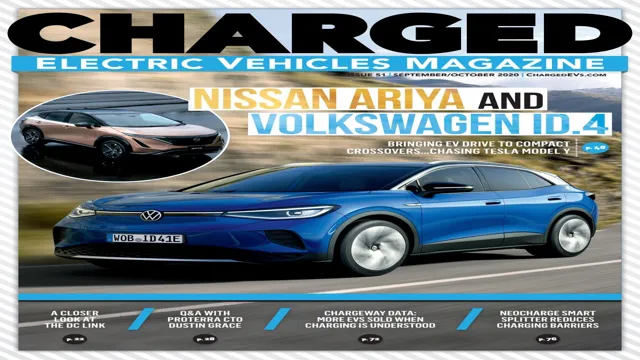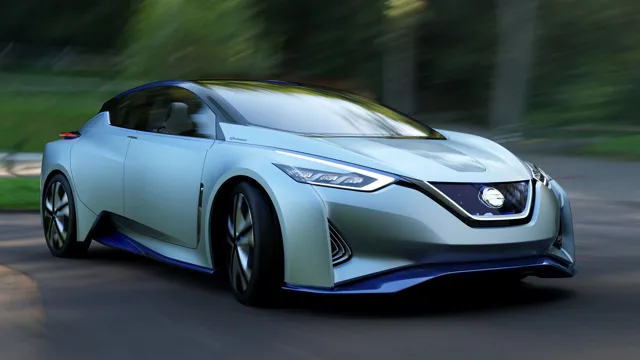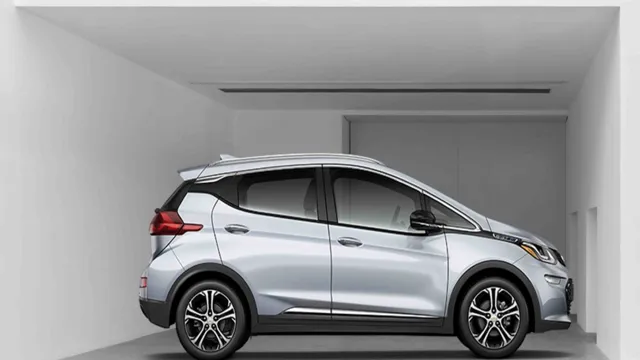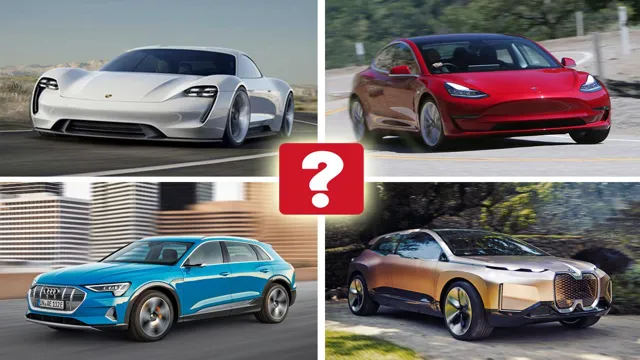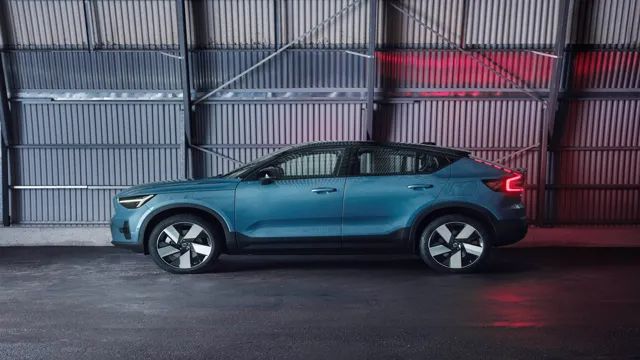Revolutionizing the Roads: The Impact of Electric Cars on the Future of Transportation – A Scholastic News Analysis
Electric cars have been around for quite some time now, but it’s only recently that they’ve started to gain an impressive amount of traction. With the world becoming more environmentally conscious, the rise of electric cars is not surprising. Not only are they good for the environment, but they’re also economical and provide an excellent driving experience.
Today, electric cars are seen as a threat to the traditional gasoline-powered vehicles. Everybody loves a good road trip, and the thought of having to take breaks to recharge your vehicle can be daunting. However, as technology continues to advance, this problem is increasingly becoming a thing of the past.
The rise of electric cars can be attributed to several factors, including government incentives, technological advancements, and a growing demand for eco-friendly alternatives. With every new development, electric cars become more accessible to the average consumer. In this blog, we’ll be exploring the significant advancements in the electric vehicle industry and shedding some light on the future of this innovation.
From new models to charging infrastuctures and everything in between, we’ll be providing you with all the information you need to know about electric cars. So fasten your seatbelts, charge your laptops (and cars), and join us on this exciting journey to the future of transportation.
Current State of Electric Cars
The current state of electric cars has been making waves in the automotive industry and among consumers alike. According to Scholastic News, electric cars are becoming more widely accepted due to their eco-friendliness and sustainable energy use. Many major automakers are investing in electric car technology, including Tesla, which has been leading the charge with its innovative and sleek electric vehicles.
Additionally, as battery technology continues to advance, the range of electric cars is also increasing, making them a more practical option for day-to-day use. While electric cars still face challenges in terms of infrastructure and affordability, it’s clear that they are a promising and rapidly growing segment of the automotive market. As we look to the future, it’s likely that electric cars will continue to gain popularity and become an increasingly commonplace sight on our roads.
Sales and Market Share
As the world turns to more sustainable transportation, the electric car has become an increasingly popular option. According to recent reports, sales of electric cars have skyrocketed in the last few years, with over 2 million electric cars sold globally in 2019 alone. Despite the COVID-19 pandemic, sales of electric cars have remained strong, and the market share of these vehicles has steadily increased.
In fact, some countries, like Norway, have seen electric cars overtake traditional gasoline cars in terms of market share. While electric cars still only make up a small percentage of overall car sales, it’s clear that they are here to stay. As more and more people become aware of their benefits, from reduced emissions to lower operating costs, it’s likely that demand for electric cars will only continue to grow in the coming years.

Environmental Benefits
The current state of electric cars is promising for the environment. With zero emissions, electric cars offer a sustainable solution to our transportation needs. The production of electric cars also has a significantly lower carbon footprint compared to traditional gasoline-powered cars.
Additionally, renewable energy sources such as solar and wind power can be used to charge the batteries, making electric cars even more environmentally friendly. As electric cars become more affordable and accessible, we can expect to see a reduction in air pollution and a positive impact on global warming. So, why not switch to electric cars and make a difference in preserving the planet’s natural beauty?
Advancements in Electric Cars
Scholastic News electric cars are taking the world by storm as advancements in this technology continue to revolutionize the automotive industry. Recently, electric cars have become more affordable, efficient, and practical thanks to the development of better batteries, increased charging infrastructure, and improved manufacturing processes. As a result, electric cars are becoming more accessible to a wider range of consumers, allowing them to be the preferred choice for environmentally conscious individuals.
Additionally, electric cars are now able to travel longer distances on a single charge, making them a viable option for more long-distance travel. With more and more car manufacturers investing in electric vehicle technology, it’s clear that the future of transportation is electric. So, if you’re looking for a more sustainable and eco-friendly way to get around, a Scholastic News electric car could be the perfect choice for you.
Battery Life and Charging
As electric cars continue to gain popularity, advancements in battery life and charging technology are making them even more practical for everyday use. Thanks to developments in battery chemistry and materials, modern electric cars can now travel farther and charge faster than in previous years. Some models now boast a range of over 400 miles on a single charge, making them an ideal option for road trips or long commutes.
Additionally, charging times have drastically decreased, with some fast chargers able to fill up a car’s battery in as little as 30 minutes. As a result, range anxiety and long charging times are becoming a thing of the past. These advancements in battery and charging technology are making electric cars more accessible to the average driver and steadily working toward a more sustainable future.
Autonomous Driving Technology
Autonomous driving technology has been one of the most rapidly-evolving aspects of the automotive industry in recent years. With various advancements in electrical engineering and programming, electric cars have become a practical mode of transportation. One of the most important breakthroughs has been the development of self-driving cars.
These vehicles use sensors, radars, cameras and other technologies to safely navigate roads and highways without human intervention. While the concept of self-driving cars was once seen as a futuristic fantasy, they are now a very real possibility. With continued investment and research into autonomous driving technology, we can hope to see improved safety, efficiency, and sustainability in the future of driving.
Cost and Affordability
When it comes to advancements in electric cars, one of the most significant factors that car enthusiasts and potential buyers consider is cost and affordability. In the past, electric cars were notorious for their high prices and limited models. However, with advancements in technology and innovation, electric cars are becoming more accessible and affordable.
Nowadays, you can find electric cars with price tags that are competitive with traditional gasoline-powered cars. Plus, owning an electric car offers long-term cost savings due to lower fuel and maintenance costs. With electric vehicles on the rise, this is good news for consumers who are environmentally conscious, cost-conscious, or both.
The keyword here is “affordability,” and electric car manufacturers have been able to achieve this by creating more efficient and cost-effective models.
Electric Cars in Education
Scholastic News Electric Cars Electric cars are a hot topic, especially in education circles! More and more schools are incorporating electric cars into their curriculum, introducing students to this innovative technology and encouraging them to learn about the benefits of using electric vehicles. With Scholastic News covering this topic, it’s easier than ever for educators to create lesson plans that revolve around electric cars, exploring everything from how they work, to their environmental impact and the future of sustainable transportation. With electric cars becoming more affordable and accessible, now is the perfect time to teach the next generation about the benefits of renewable energy.
By using Scholastic News as a resource, educators can spark enthusiasm in their students, highlighting the important role that electric cars will play in shaping the future of transportation.
Scholastic News Coverage
Electric cars have been making waves in the world of education, with educators and students alike keen to learn more about this innovative and eco-friendly mode of transportation. Thanks to their low environmental impact, electric cars are becoming an increasingly popular focus of study across a variety of educational disciplines, from science and engineering to politics and environmentalism. At the heart of this trend is a growing awareness of the need to conserve energy and reduce our carbon footprint, and electric cars are seen as an important step in achieving that goal.
As a result, students are being encouraged to explore the technology behind electric cars and to consider the role that they could play in shaping the future of transportation. Whether through classroom discussions, lab experiments, or hands-on projects, electric cars are proving to be an exciting and inspiring subject for students of all ages and backgrounds. By bringing together the worlds of education and sustainable living, electric cars are helping to shape a brighter, more sustainable future for all.
Educational Benefits for Students
Electric cars can provide numerous educational benefits to students. First, they offer a hands-on learning opportunity, allowing students to explore the mechanics of electric vehicles and understand how they differ from traditional gasoline-powered cars. This can help students develop a greater understanding of renewable energy and sustainable transportation.
Electric cars offer an opportunity to explore the relationship between science, technology, engineering, and mathematics (STEM) concepts. For example, students can learn about battery chemistry and design, motor efficiency, and energy transfer. Additionally, studying electric cars can help students develop critical thinking and problem-solving skills by examining topics such as charging infrastructure, range anxiety, and the environmental impact of vehicle production and use.
Overall, incorporating electric cars into education can provide a unique and engaging way for students to learn about renewable energy and sustainable transportation while also developing important skills and knowledge that will serve them well in the future.
Future of Electric Cars
Scholastic News recently reported on the future of electric cars, highlighting the immense potential for growth in this industry. As technology continues to advance and environmental concerns become more pressing, more and more people are turning to electric cars as a viable alternative to traditional gas-guzzlers. With benefits like reduced emissions and lower long-term costs, there’s no doubt that electric cars are here to stay.
However, there are still some challenges that need to be addressed, such as charging infrastructure and range anxiety. Despite these hurdles, the future looks bright for electric cars, and it’s exciting to see how this industry will continue to evolve in the years to come. As consumers become more environmentally-conscious and technology continues to improve, the demand for electric cars is sure to accelerate, paving the way for a cleaner, greener future.
Conclusion
In conclusion, electric cars represent a promising solution to our planet’s growing energy and environmental concerns. With their efficient electric motors and reduced reliance on fossil fuels, they provide a cleaner and more sustainable alternative to traditional gas-powered vehicles. As we continue to innovate and refine this technology, the future looks bright for a world powered by clean and efficient electric transportation.
Who knows, maybe one day we’ll all be cruising around in flying Teslas! Just kidding, but who knows what the future holds for the world of electric cars.”
FAQs
What is Scholastic News?
Scholastic News is a news and current events magazine designed for elementary and middle school students.
How do electric cars work?
Electric cars use rechargeable batteries to power an electric motor that turns the wheels. When you plug the car into an electrical outlet, the batteries recharge to provide energy for the car.
Why are electric cars more sustainable than gasoline cars?
Electric cars are more sustainable than gasoline cars because they produce zero emissions, so they don’t contribute to air pollution. Additionally, electricity can be generated from renewable sources like wind, solar, and hydro, making electric cars a more eco-friendly alternative to gasoline cars.
What are some benefits of using electric cars?
The benefits of using electric cars include lower fuel costs, reduced emissions, and quieter operation. Electric cars also require less maintenance than gasoline cars and have a longer lifespan for their batteries.


